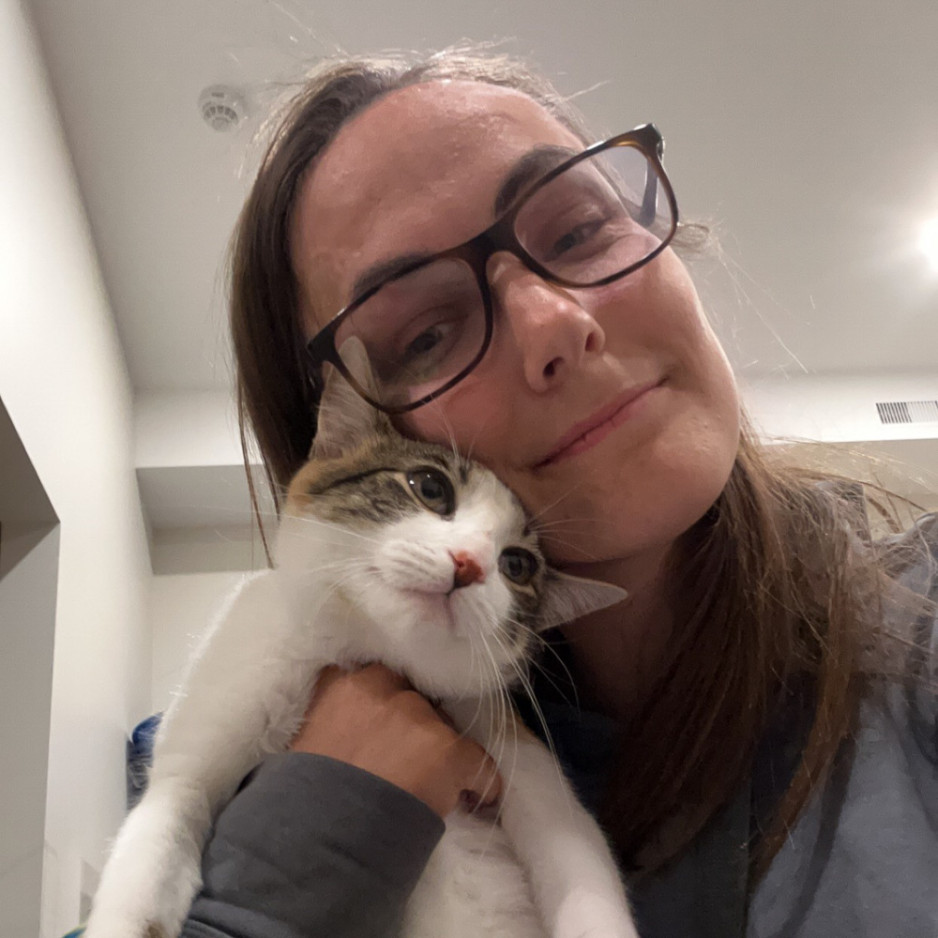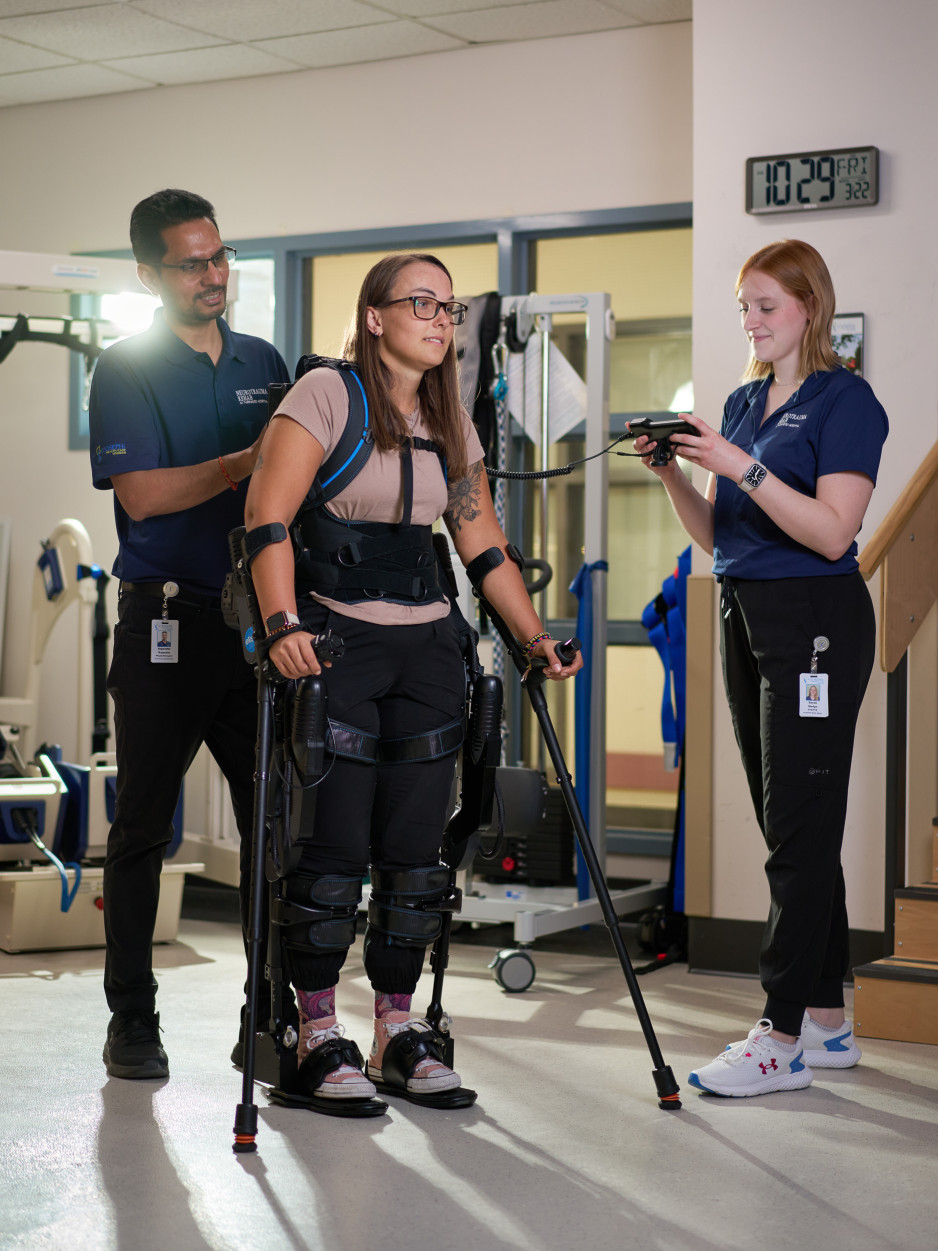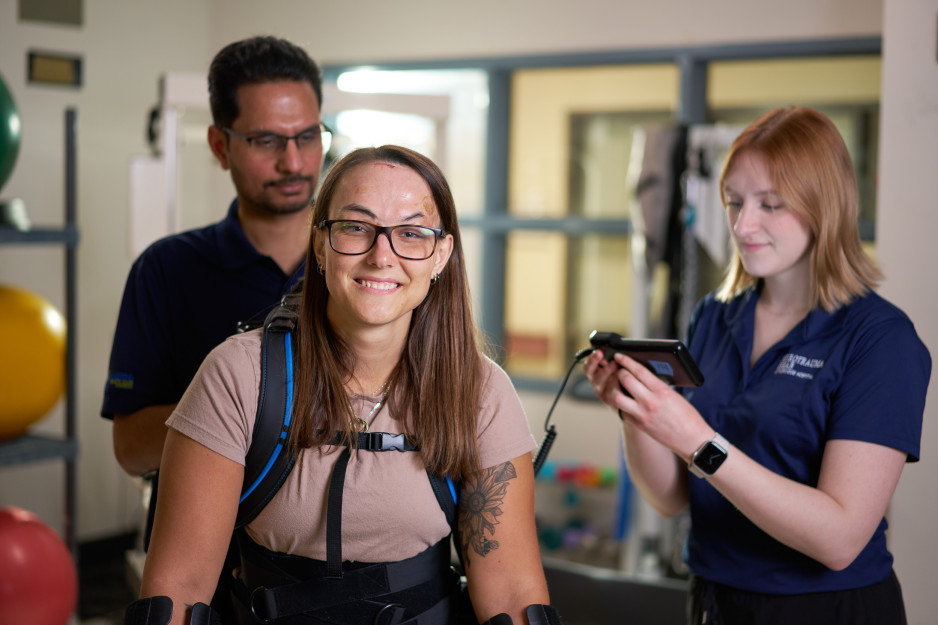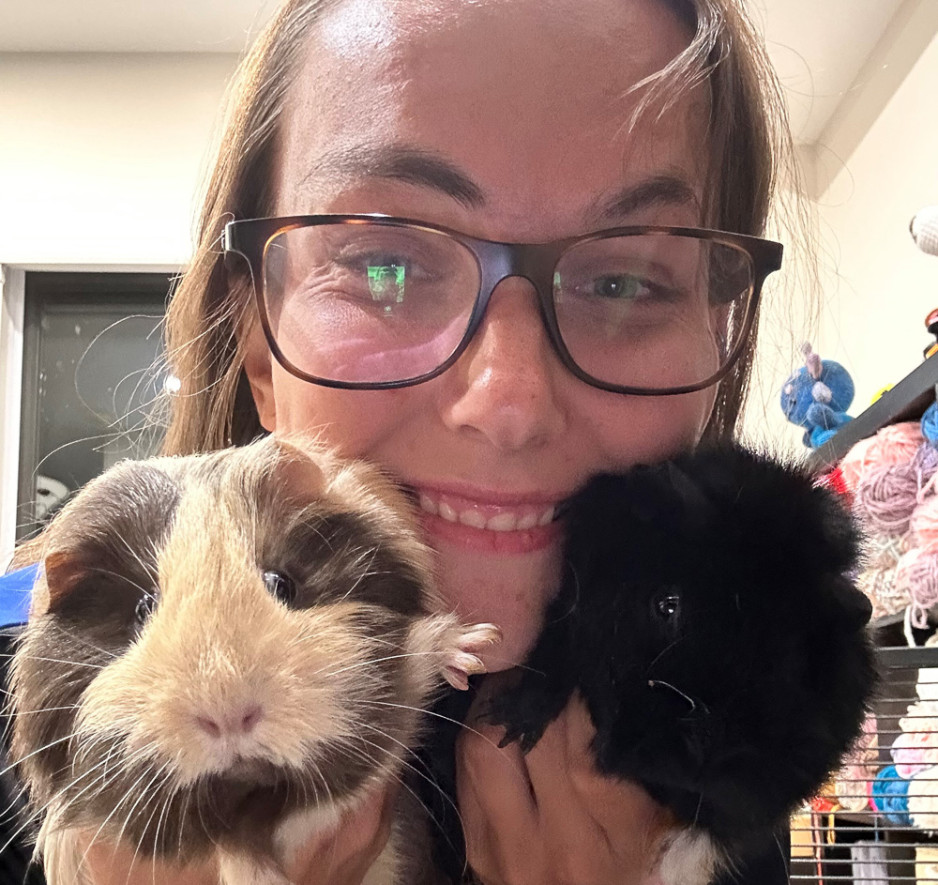Forward focused
Growing up, Natasha Smids loved sports and animals. A natural athlete, she played everything from soccer and badminton to rugby and basketball. And with more than one pet at home and surrounded by farms, she dreamed of becoming a veterinarian technician specializing in large animals. And so, once she graduated from high school, Natasha headed off to the University of Guelph’s Ridgetown Campus to fulfill her career plans, with her large extended family cheering her on.
Those plans came crashing down when Natasha had a tragic accident during her winter break, and she severely injured her neck, suffered a spinal cord injury and lost part of her scalp. Natasha spent months in hospital learning to breathe on her own, sit up and hold herself upright. Once she was able to sit upright, she was transferred to Parkwood Institute.
For the next two and half months, Natasha underwent intense rehabilitation. She slowly began regaining her strength, stability and fine motor skills while working with the physio- and occupational therapy teams.
“The teams at Parkwood are phenomenal,” says Natasha. “They have so much patience and made a big difference in my life.”
In May 2020, five months after her accident, Natasha was discharged from Parkwood Institute. Because it was during the height of the COVID-19 pandemic, her rehabilitation plan was put on hold for two months.
Natasha resumed her rehab with the Parkwood Institute team and once her standing tolerance improved by using a standing frame, Natasha began first using the Lokomat. A robotic medical device, Lokomat provides physiological and intensive rehabilitative gait training for patients.
She then graduated to the Ekso, a wearable, battery-operated bionic exoskeleton that enables people with lower extremity weakness or paralysis to stand and walk on level surfaces. It has motors to move hip and knee joints that patients control on their own or with an external controller.
The Ekso is used as a gait training device to improve and restore walking function and independence in patients with a neurological or muscular injury, illness or weakness, under the supervision of a trained physiotherapist.
Rajender Rajender, a physiotherapist in the Neuro Trauma Rehabilitation unit, has been working closely with Natasha for months as she strives to achieve her rehab goals. He says that the device, which is unique in the region, provides a number of therapeutic benefits including helping people to walk again after losing that ability.
After nearly three years, Natasha’s training with the Ekso is winding down, and she’s proud of the strides that she’s made so far. She’s also grateful to donors who continue to support the rehabilitation program and her care journey.
“They are doing the Lord’s work,” she says. “Their support makes such a difference, and helps people to be independent, while offering encouragement for people who may be struggling. I offer them a humble thank you.”
And while she will be spending less time at Parkwood Institute, she’s continuing her rehab with her own therapist, who offers her both physical and psychological support.
“Working with my therapist is helping me to transition back to society,” says Natasha.
A regular gym-goer before her accident, Natasha says that it’s been a bit of a shock to return to her regular workout space as a wheelchair user.
She has also resumed playing rugby. She’s a member of the London Annihilators, a local mixed wheelchair rugby team.
“The coaches on the team are great. There’s lots of tough love and I definitely get my butt handed to me, but I love it,” she says.
And when she’s not working out, Natasha volunteers with the youth program at her church, teaches new skills to elementary students at a local school and helps coach her former rugby team.
Natasha’s family, along with her two cats, two guinea pigs, two rats and a gerbil, have been with her throughout her entire rehabilitation journey.
“I have had great family support, and my faith and relationship with God help me to stay positive and are helping me to get back to where I want to be.”
Your Donation Matters Here
You can support exceptional care by making a donation today in support of care, teaching and research at St. Joseph's.



